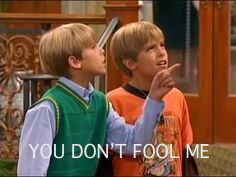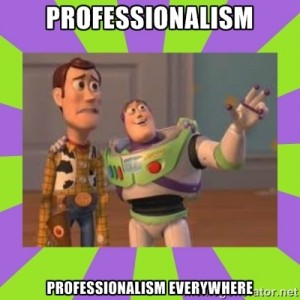
Guatemala’s pretty chill
Hey all! Abby here. I am so excited to be one of your TAs this fall. I know that you’re all drawn in by the title, so I’ll get to the secret recipe for doing well in one second. First I want to introduce myself! My name is Abby Kennedy and I am a junior here at Penn State–that’s crazy since I swore someone just told me how jealous they were of me for being a freshman. Let me take this chance to tell you I am jealous of you if you are a freshman (enjoy it and never let it go until they make you). I’m double majoring in English and Secondary English Education with minors in History and Latin American studies, which means I want to teach English and Social Studies at a high school level in a Latino community someday and use my Spanish. This summer I was studying abroad and conducting independent research in Guatemala. I actually had my own blogging requirement for that trip, so if you want to learn more about my trip, see here.
See what I just did there? A live link! Those are pretty easy to do in a regular blog post because all you have to do is use the live link button in your toolbox above the text.

Live Link Button
See my picture that I added to illustrate that? Used the Add Media button for that. For Comments, it can be a little more difficult because there’s no button, but I always used this website, which tells you the manual way to do it (Use the Code In Context one). Now I know this stuff seems basic and maybe irrelevant, but the reason why Andrew wants you to use those two things is because in your blogs, you’ve got to do three things: #1 Make a clear, compelling, and unique scientific argument or inquiry #2 Back up your claims with logic and credible scientific data or theory and #3 Make it interesting enough that other people will read it. Live links to scientific studies, journal articles, or statistics (which save so much time compared to bibliographies) are great ways to back up your posts with solid evidence in a way that people can easily follow. Pictures can do that too (example: charts, graphs), and pictures also give some life to what you’re writing about. If you swing it right, videos and memes can be great too. As far as the blogging part of your grade goes, live links and pictures are great ways to back up a strong blog and get you closer to an A.
So what else to you have to do?
First, you should always be posing some sort of question and maybe even try to answer it–or at least explain how you could answer it. If you want to say that there’s a new treatment for spinal injuries, that’s fine but examine it. Does this new treatment work? How do we know or how can we know? You can see my blog about that here.
Focus on specifics, not general topics. You want to write about how boys and girls are different? Cool, but narrow it down to a specific way they may or may not be different like school.
Pick topics that interest you for starters. If you do that, you will mind less doing research into all of the avenues of questions and explanations, and you should do research into those.

When we won the 2015 ICCA Quarterfinals!
I’m in an a cappella group on campus, The Coda Conduct, so I love music. When I looked at whether or not music is good to listen to while studying, I asked questions about different types of music, different volume levels, and different types of work. Then I searched for scientific articles about those topics or related ones until I got better answers or I found that there was a lack of research. When that happens, suggest hypothetical experiments someone could do in order to get better answers. Don’t worry, that’s not as hard as it sounds and you’ll get it after a little bit of time with Andrew. In science, you’re usually more likely to come up with more questions or ambiguous answers than you are with definitive facts. That’s okay!

Make Your Blogs Unbreakable
And when you’re backing up your claims or trains of thought with evidence, use credible evidence. What I mean by that is, go beyond an easy Google search of CNN articles about stuff. Those are good for getting a general gist of something at first. But looking at academic journals is where you get the best evidence. I recommend Google Scholar, which connects your searches to academic articles that you can access. Sometimes it takes time to read these–I suggest reading the hypothesis, abstract, and conclusion to papers first–but it’s super important. Here’s why: When it comes to science, you have to make sure that if someone challenged you, that your argument could stand up to their challenge (that’s true for lots of disciplines like education, business, etc.). I wrote a blog about why you should get the flu vaccines every year, and I fought against all the counterarguments with solid evidence from scientific journals or statistics so that my piece couldn’t be disputed. When you’re talking about something as serious as vaccines (Andrew will explain why they’re serious), you have to make your stuff untouchable–again, great advice for anything you write or argue.

Our Fearless SC 200 Leader
Reference the stuff from class. Andrew is a brilliant guy, despite how chill he seems. He teaches you great patterns of critical thinking and examination in class, stuff that’s considered great around the scientific community. Question the size of the study, talk about false positives, remember that correlation isn’t causation (all of that will make sense in a bit). If you do, your work will be stronger.
Here’s my final takeaway (not a bad thing to end your blogs with): Yes, this course requires work. But the way I see it is you guys are here, so make the most of your time and efforts. You have to be in class anyhow, so listen and take notes. You have to write a minimum number of blogs, so write the best one so that you don’t have to write more. That stuff will mean less cramming for tests and writing blogs that you know aren’t good. As far as liking science a little better than you did in freshman year biology goes, that will come as you get more engaged with the class. At least it did for me, and I hated those frog dissections as much as anyone. 


























